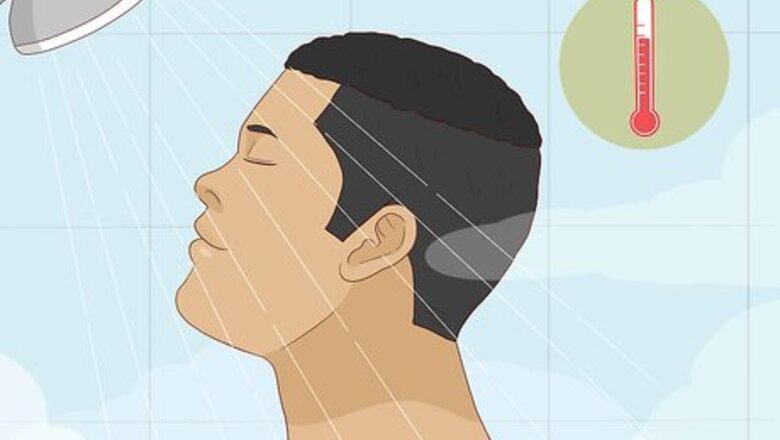
views
Here are 10 effective ways to get rid of a bothersome dry cough.
Take hot showers.
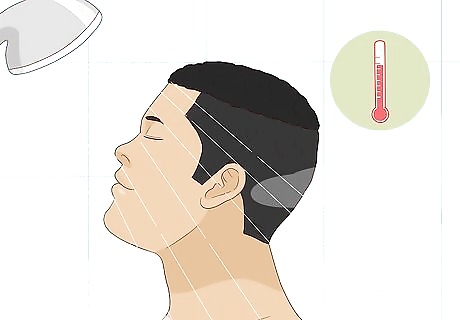
The steam from a hot shower can help reduce coughing. Get in the shower and turn it on hot enough to generate steam without burning yourself. Make sure the bathroom door is closed to keep all the steam in. Feel free to do this for as long as is comfortable or multiple times a day. Steam can also help make a dry cough more productive. If you feel like the steam loosens some mucus in your chest, try to cough it up to get rid of it. You can also just turn the shower on really hot and sit or stand in the bathroom breathing in the steam for a few minutes. All kinds of warm, moist air help relieve dry coughs. Dry coughs are irritated by cold, dry air.
Use a humidifier.
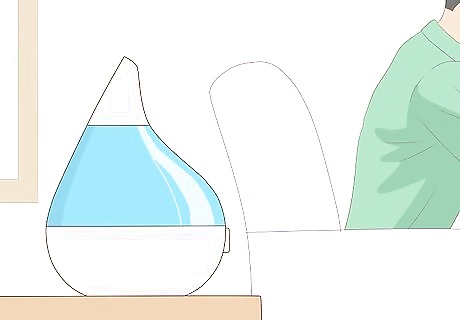
This makes the air less dry and irritating. Plug the humidifier in whatever room you’re spending time in during the day and and turn it on. Or, turn it on in your bedroom at night to keep the air humid while you sleep. Keep your humidifier clean according to the manufacturer’s instructions to avoid letting mold and fungus grow in it, which can actually make your cough worse.
Drink lots of fluids to stay hydrated.

Staying hydrated reduces your cough reflex and helps loosen mucus. Keep a full glass or bottle of water with you throughout the day and sip on it to stay hydrated. Take a drink whenever you’re having a fit of coughing to relieve yourself. Refill the glass or bottle when it’s empty, so you always have a liquid at hand. Avoid dehydrating beverages like alcohol, which can worsen your symptoms. Juices can also help relieve your dry cough.
Drink warm, soothing liquids.
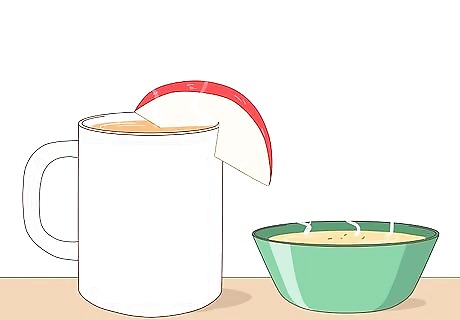
Hot beverages help relieve fits of coughing. Have a mug of hot apple juice, for example. Or, try a mixture of hot water, 1/2 tsp (2.5 mL) of lemon juice, and 1/2 tsp (2.5 mL) of honey. Warm herbal tea is a good option too. However, avoid black tea because the caffeine it contains can make you feel dehydrated. Hot broths, such as bone broth or chicken broth, can also help. Don’t give honey to children under 1 year old because honey can contain bacteria that can lead to infant botulism.
Have a spoonful of honey.
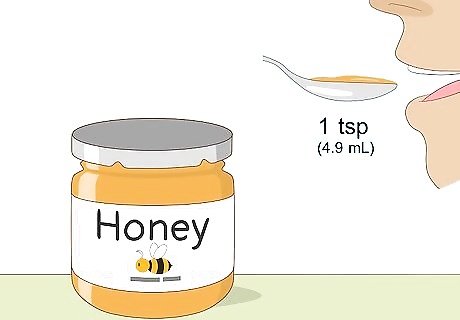
Honey has antimicrobial and anti-inflammatory properties. Measure out about 1 tsp (4.9 mL) of honey. Eat it off the spoon to help relieve your coughing symptoms and soothe your throat. Honey contains sugar and calories, so try not to have more than 2 tbsp (42 mL) of honey per day to avoid exceeding the recommended amount of added sugars in your diet. Don’t give honey to children younger than 1 year old because of the risk of botulism.
Suck on cough drops.
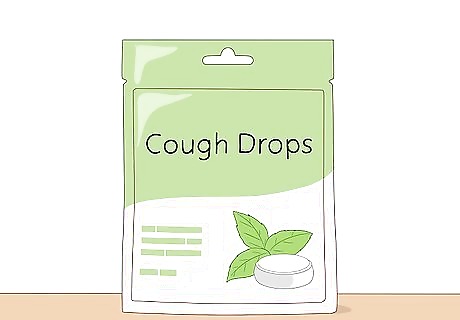
These can ease your dry cough and soothe your throat. Get some medicated menthol cough drops from a pharmacy. Suck on them throughout the day when you’re coughing and when your throat feels irritated. You can also suck on any hard candy instead of medicated cough drops.
Take paracetamol or ibuprofen to treat any pain.
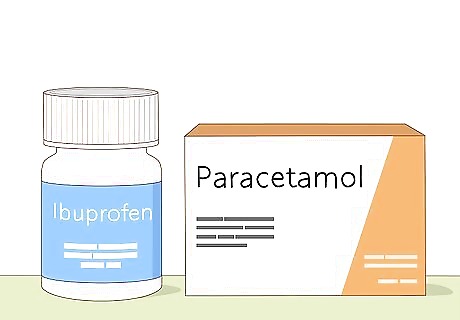
Over-the-counter painkillers make you more comfortable. If your throat is really hurting from all the dry coughing, take an OTC painkiller according to the directions on the label. Don’t exceed the recommended amount of pills per day. Paracetamol and ibuprofen work to fight pain in very similar ways, but ibuprofen also reduces inflammation.
Sleep with your head propped up on pillows.
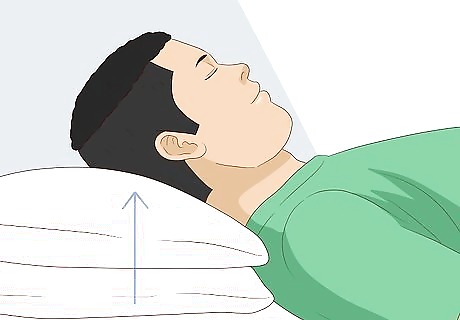
This can help you cough less at night by preventing mucus from pooling. Add an extra pillow under your head to keep it higher than the rest of your body while you sleep. Alternatively, elevate the head of your bed by putting something under it. This can work particularly well if your dry cough is due to post-nasal drip or gastroesophageal reflux disease.
Avoid exposure to tobacco smoke and other irritants.
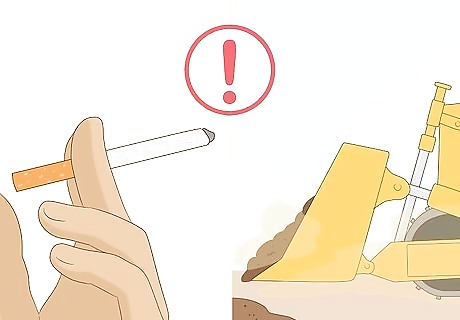
Smoke and other inhaled irritants make dry coughs worse. Stop smoking if you’re a smoker to avoid making your cough worse. Don’t hang around people who are smoking to avoid exposure to second-hand smoke. Wear an appropriate face mask if you’re in dusty environments or around other pollutants in the air, such as strong cleaning products. If you’re a smoker and you have a chronic cough, consult with your doctor immediately.
See a doctor if your cough lasts longer than 3 weeks.
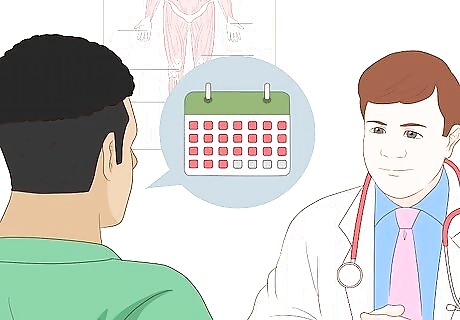
A long-term persistent cough could be a sign of something more serious. Schedule an appointment with your general practitioner or go to a walk-in clinic. Explain your condition to the doctor and ask them to diagnose the cause and provide recommendations for a cure. Also, see a doctor immediately if your cough is accompanied by fever, weight loss, night sweats, difficulty breathing, excessive fatigue, or chest pain.











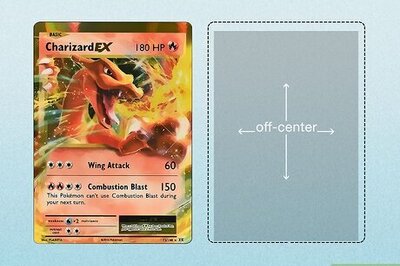








Comments
0 comment